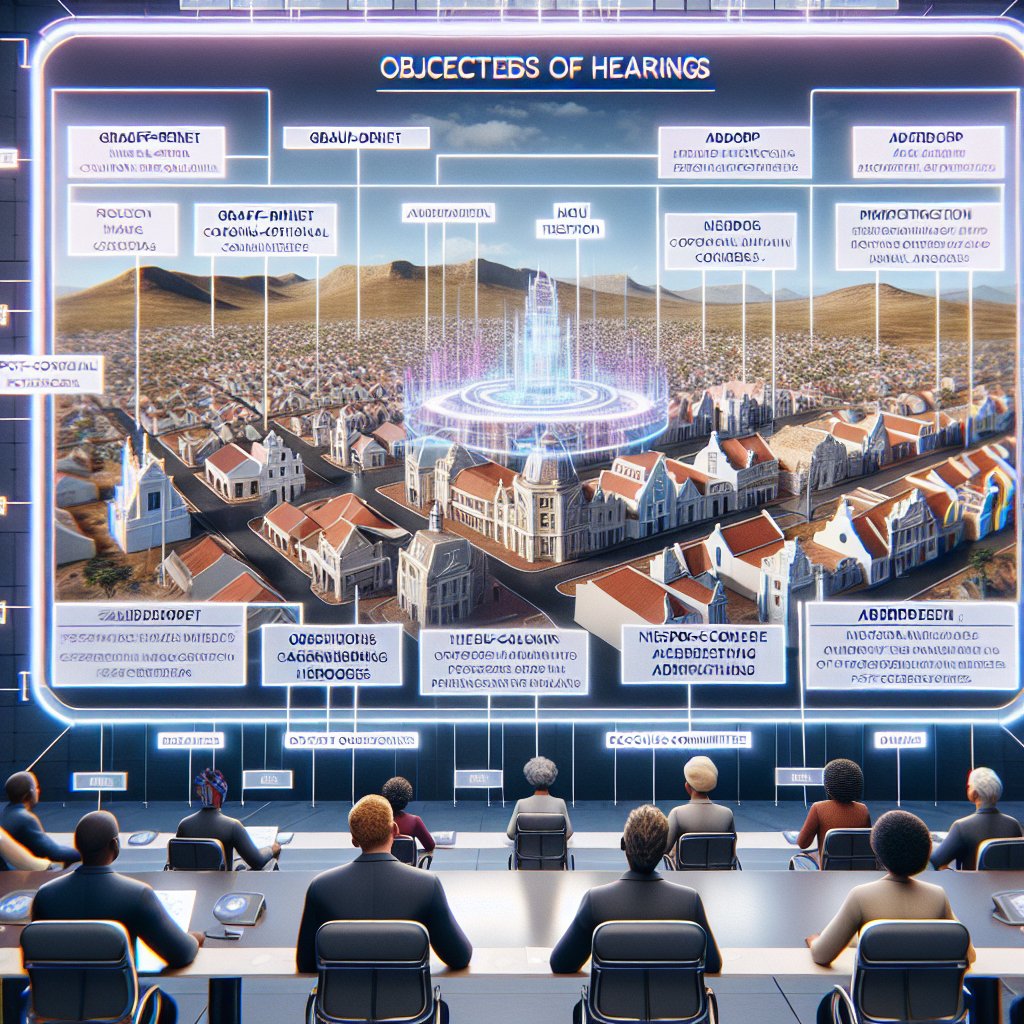Image created by AI
Eastern Cape Towns Brace for Name Changes Amidst Public Hearings
In an effort to revisit and perhaps reshape its historical narrative, the Eastern Cape is hosting public hearings to deliberate on the proposed name changes of several of its towns. The Eastern Cape Provincial Geographical Names Committee (ECPGNC) will preside over the hearings scheduled to take place from February 26th to 29th. The discussions will weave through the streets of history touching on towns like Graaff-Reinet, Adendorp, Nieu-Bethesda, and Aberdeen, examining the layers of their colonial past and the potential for honoring post-colonial heroes.
Graaff-Reinet, a gem nestled in the heart of the Karoo, faces the potential of being renamed Robert Mangaliso Sobukwe. Sobukwe, an anti-apartheid activist known for his profound impact on South Africa's struggle for liberation, could soon find his legacy cemented even further in the country's topography. Similarly, Adendorp is under deliberation to be called KwaMseki Bishop Limba, in honor of local revered figures.
During these hearings, the ECPGNC is poised to clarify the nuances behind each proposed name change. These gatherings serve as platforms where the public can voice their opinions and submit comments. It is here the people's pulse on the matter can be gauged—where history, memory, and identity intertwine.
The process is meticulous—a gauntlet of checks and balances is traversed to ensure that every voice is acknowledged. If objections arise, they are ushered to the ECPGNC’s Objections Sub-committee, where each concern is examined with due diligence. From there, should a consensus emerge among all relevant stakeholders, recommendations ascend to the national South African Geographical Names Council.
Notably, these proposed name changes have fueled a debate that scours the intent of the ruling ANC party. Critics claim that the party's investment in renaming existing towns and roads is a misallocation of resources—a diversion from the pressing need to invest in the creation of new infrastructure. Furthermore, they argue that these proposed changes clash with the historical significance embedded in the original names, the stories of those who laid the bricks and asphalt of these localities.
Proponents of the name changes, however, argue that these acts are critical in rectifying historical imbalances, signaling a new era where previously marginalized figures are finally granted the recognition they deserve. These changes, supporters contend, are poignant echoes that reaffirm a commitment to celebrating the nation's diverse heritage, and provide stepping stones for the process of healing and reconciliation.
As South Africa continues to embark on its journey of transformation and identity reclamation, the discussions sparked by the proposed name changes in the Eastern Cape are glimpses of the broader dialogue about the nation’s past and its aspirations for the future. The forthcoming hearings are not merely administrative formalities; they are civic engagements at the heart of South Africa’s unfolding narrative.
#GOOGLE_AD










